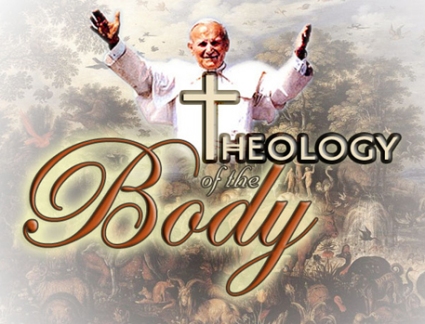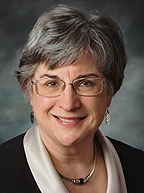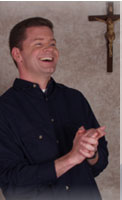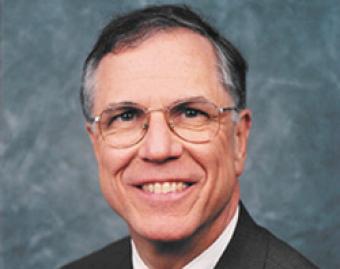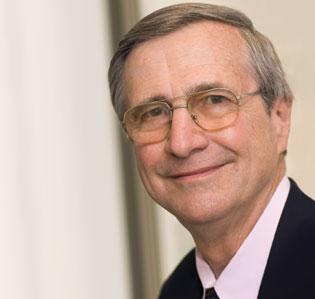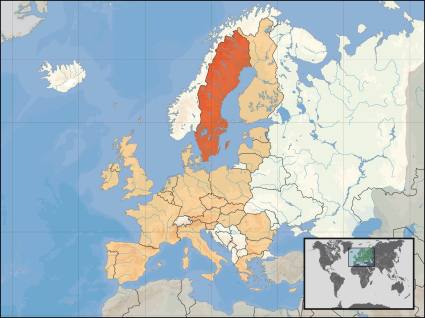Institute’s New Director on Speaking Truth in Understandable Ways
By Kathleen Naab
PHILADELPHIA, Pennsylvania, JAN. 9, 2012 (Zenit.org).- A Philadelphia-based educational institute focused on promoting Blessed John Paul II’s theology of the body has named a new executive director.
 The 7-year-old Theology of the Body Institute picked Damon Owens, a successful businessman turned marriage promoter. Included on his extensive resume is his work as the Archdiocese of Newark’s Natural Family Planning and Marriage Preparation Coordinator, and leadership with the Life Education And Resource Network (L.E.A.R.N.), the largest African-American, pro-life ministry in the country.
The 7-year-old Theology of the Body Institute picked Damon Owens, a successful businessman turned marriage promoter. Included on his extensive resume is his work as the Archdiocese of Newark’s Natural Family Planning and Marriage Preparation Coordinator, and leadership with the Life Education And Resource Network (L.E.A.R.N.), the largest African-American, pro-life ministry in the country.
Owens is himself a certified Natural Family Planning instructor who has counseled more than 20,000 couples over the last 16 years. He often appears on Catholic television and radio, sharing various aspects of the theology of the body, as well as commentating on topics related to marriage and family. He and his wife, Melanie, have been married for 18 years and have eight children.
ZENIT spoke with Owens about the Theology of the Body Institute and its work, and the difficulties facing those who promote Blessed John Paul’s message.
ZENIT: The Theology of the Body Institute exists to promote John Paul II’s theology at the secular level, too. Is that truly possible and if so how?
Owens: Our mission is to train and educate men and women to understand, live and promote Blessed John Paul II’s theology of the body. While most of the individuals who come in contact with our programs are Catholic, our on-site and Certification courses regularly draw non-Catholics and non-Christians. It is not only possible, but it is critical that we evangelize the broader culture. Our preparation as believers for the “springtime of the new evangelization” includes a deeper grounding not only in the “what’s” of our faith, but the “why’s” behind them.
As believers, we accept even what we cannot fully understand about God’s revelation, because we love and trust him. Still, our faith is reasonable. There is a tremendous amount of truth that can be encountered before an assent of faith. There is a tremendous amount of beautiful and compelling meaning that can be successfully proposed even to a darkened intellect and hardened heart.
Rooted in objective truth, the theology of the body provides a personalistic approach that is well-suited for evangelizing in the modern culture. Our sexuality — masculinity and femininity — carries deep meaning for the identity and vocation of every human person. It is also the place of deep wounds for so many. The Theology of the Body Institute desires to help persons in every state of life gain an understanding of what it means to be created in God’s image and to live out their call to love as he loves. Only from this foundation can an authentic culture of life and love take root and flourish.
ZENIT: Linked to the previous question, statistics about Catholic married couple’s use of artificial contraception seem to indicate there is plenty need for Catholics as well to hear and accept John Paul’s theology. What are your thoughts in this regard? Must we first clean up our own camp before engaging the secular world?
Owens: Beginning with your last question, evangelization is, of course, intimately connected with catechesis (the head) and conversion (the heart). It is always a messy, personal, and inefficient work! Our witness is hurt by our own sin, ignorance, and lack of faith. On one hand, our ongoing conversion strengthens our witness. On the other hand, we have to be careful about setting too high a standard of personal perfection before witnessing to perfection. Without question, contraception is a tap-root of nearly every modern evil. Moreover, the prevalence of Christians contracepting is both a cause and an effect of the rise of other grave evils such as pornography, divorce, violence against women, abortion, fornication and homosexuality. These were the predicted consequences of their widespread use, and the subsequent result of their widespread acceptance.
The question remains, however: How do we reach people’s heads and hearts to reject the evil of contraception? It cannot just be emphatic instruction on the mortal sin of contraception (the head). It must include a compelling invitation to a true conversion of heart. Their hearts must “see” how contraception is a withholding of themselves that deforms the marital act and stifles the very love they long for. Theology of the body is a means to illumine the immutable meaning of things (natural law) in the heart of the person.
Fortunately, the great majority truly desire love. Whether they are in a pew or at the mall on Sunday, they deserve to hear the truth in a way that they can understand it. It is in our heart — or inner life — that we as unique and unrepeatable persons encounter the One True God. While we certainly wish there were a more authentic faith witness from Catholic married couples today, we at the Theology of the Body Institute have been just as awed by conversions in the Faith as by those to the Faith. We remain passionately committed to the simple mission of educating and training men and women to understand, live, and promote the Theology of the Body.
ZENIT: Tell us about the institute and plans you have for it as the new executive director.
Owens: The Theology of the Body Institute was formed in 2004 with the simple mission to educate and train men and women to understand, live and promote the theology of the body. Each of the founders experienced a profound conversion through Blessed John Paul II’s great work and continue to be animated by the desire to make it accessible to the world — Christian and secular — in an understandable, engaging and attractive manner. Ours is an integrated educational approach that presents the rich intellectual theology in an environment that encourages a real encounter with Our Lord. As we often say, it is an immersion of the head and the heart!
Our certification program with its retreat-format courses is the heart of our mission. These courses include Theology of the Body I, II, & III, Love & Responsibility, Catholic Sexual Ethics, Writings of John Paul II on Gender, Marriage, & Family, The Thought of Karol Wojtyla, and Theology of the Body & the Interior Life. Our on-site events at schools, parishes, seminaries and conferences around the world complement these courses and have grown in number and size every year.
We have a world-class faculty that includes Dr. Janet Smith, Dr. Michael Waldstein, Christopher West, Bill Donaghy, Dr. John Haas, and beginning for 2012-2013, Dr. Peter Kreeft and Fr. Timothy Gallagher, OMV. To date, more than 1,600 individuals have come to Pennsylvania for our week-long certification courses, and thousands have attended our on-site events around the world. We also held the first Theology of the Body Congress in 2010 bringing together leaders from around the world to explore the diverse applications of TOB. So, I begin with an organization that I consider successful in its mission.
My plans are to build on this success with an enhanced Clergy Enrichment Program for priests and seminarians that enriches both their priestly identity and vocation as fathers. We also plan to expand both our faculty and our Certification course offerings to reach even more lay and clerical leaders. The fact remains that only a small percentage of people in the world are familiar with this profound teaching. I see my role as expanding this success, as opposed to any real change in direction.
ZENIT: You are taking over leadership of the institute when the push for same-sex marriage and adoption is unprecedented. What do you hope to contribute to this battle?
Owens: We are an educational apostolate, so our contribution to social issues such as these is teaching the meaning of things. What is marriage? What does our sexuality mean? What is love, truth, freedom, or joy? What does it mean to be a human person? How do I choose, act, and live in accord with these truths and meanings? These cultural issues ultimately represent a critical loss of the meaning and dignity of human personhood. God bless those who are taking up these issues in the public square. I did that for years and deeply appreciate the need for, and difficulty of, these urgent defenses. It is abundantly clear, however, that these issues incubated long-term in a culture steeped in a disintegrated concept of human personhood. Sexual complementarity devolved into sexual difference, now sexual difference has been denied all together. Equality is argued as sameness. So, the argument continues, since men and women are the same, there is no difference between a husband and a wife or a mother and a father.
This is an identity crisis that requires long-term reformation and restoration. If we don’t know who — and whose — we are, we won’t know how to behave in a way that is in accord with our dignity and brings us true joy. Sexuality, sexual morality, love, marriage, fatherhood, motherhood, family, and life itself are integrated realities that flow from who God has revealed himself to be — a Trinitarian Communio: Three Divine Persons in such union that they are truly One.
The Gospel is “good news” precisely because it reveals to us the deepest truths of our identity created in the “image and likeness” of God, and subsequently our vocation to love. The language, approach, and appeal of the theology of the body gives us a means to understand and embrace the Gospel by rereading the language of the body. Simply put, as the body reveals the person, masculinity and femininity reveal the original, enduring, and eternal meaning of personhood as a call to communion. Love is self-gift. By rereading the language of the body in truth, we see love as not simply something we do, but as a universal human vocation that flows from who we are.
With regard to the specific question of redefining marriage, students of theology of the body are equipped to articulate not mere disagreement, but why it is simply not possible.
Secretary of Justice and Peace Council Comments on Benedict’s Message
By Mercedes De La Torre
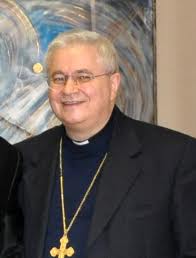 ROME, JAN. 10, 2012 (Zenit.org).- On the first day of the new year, in which the World Day of Peace was observed, Bishop Mario Toso, secretary of the Pontifical Council for Justice and Peace, commented on the Pope’s message for the Day, titled “Educate Young People in Justice and Peace.”
ROME, JAN. 10, 2012 (Zenit.org).- On the first day of the new year, in which the World Day of Peace was observed, Bishop Mario Toso, secretary of the Pontifical Council for Justice and Peace, commented on the Pope’s message for the Day, titled “Educate Young People in Justice and Peace.”
Bishop Toso pointed out that the Holy Father trusts young people, because they show hope and are able to receive God in the midst of human history.
 ZENIT spoke with the Salesian bishop, professor of social philosophy, former rector of the Pontifical Salesian University and Consultor for 20 years of the Pontifical Council for Justice and Peace, about Benedict XVI’s message.
ZENIT spoke with the Salesian bishop, professor of social philosophy, former rector of the Pontifical Salesian University and Consultor for 20 years of the Pontifical Council for Justice and Peace, about Benedict XVI’s message.
ZENIT: Why does Benedict XVI address young people in particular in this 45th Message for the World Day of Peace?
Bishop Toso: Benedict XVI wished to address this message in particular to young people who today live in a world of incessant transformation, in a world that sociologists describe as “liquid”: new projects are begun and are not solidified, so that youth live in a reality that changes constantly, and even those points that seem to be the most solid also seem to change.
In this context of swift changes and a lack of solid points of reference, Benedict XVI addresses young people, seeing them as a part of the human family that has great resources of hope. In fact, young people, especially in the World Youth Day that was held in Madrid, but also in other events that we have learned about in the media, are showing — also in reference to the fall of regimes and the need to erect democratic institutions — a young, fresh intuition, which helps adults to accept the fundamental values we must invest in and which can constitute the foundation of a more just and peaceful society.
ZENIT: Why does the Pope have confidence in young people as builders of peace?
Bishop Toso: Benedict XVI’s confidence in young people is based above all on two motives: the first is that young people, in face of life and the great responsibilities of the human family, believe in the possibility of a profound transformation, of the renewal of institutions, and their enthusiasm can be the engine for positive change in our societies, even becoming witnesses and leaders, enabling adults to question themselves.
The second reason is that Benedict XVI believes in the capacity of young people to intercept God, to receive Him in the midst of human history as the One who can help humanity to come out of the dark tunnel in which it finds itself. In reality, the dark tunnels that cause despair are different, disallowing even the possibility of a more just world. They are tunnels represented by the food crisis, the financial crisis, the crisis of appropriating essential resources, the ecological crisis and, above all, the anthropological, ethical crisis.
ZENIT: How can young people help to create a more fraternal society?
Bishop Toso: As the Message for the World Day of Peace acknowledges, young people not only have the task to be involved in the educational process, but they have a mission — Benedict XVI states clearly — to stimulate, to be an example to adults and to one another.

Young people especially have a youthful and genuine intuition in regard to great values and they make every effort and commit themselves enthusiastically in the small daily things as well as those that are important: respect for the environment, the fight against corruption and illegality, the implementation of justice, and dignified and respectful treatment of persons in the field of the economy, in the field of finance. With their example, they have the possibility of offering models of what could be the construction of a new society, and new human relations based on the values of fraternity, solidarity and mutual gift — values in which young people are particularly sensitive.
It is often said that today’s young people are the first generation that think that their descendants will live in worse conditions of life. However, I sincerely believe that young people of the age of globalization wish and know that they can contribute to the construction of a better, more united and solidary humanity, the humanity that Jesus Christ inaugurated with his Incarnation.
Where Irreligious Trends Lead After Decades
By Edward Pentin
ROME, JAN. 12, 2012 (Zenit.org).- To see how disturbing a secularist and increasingly irreligious society can become, one need only look to Sweden.
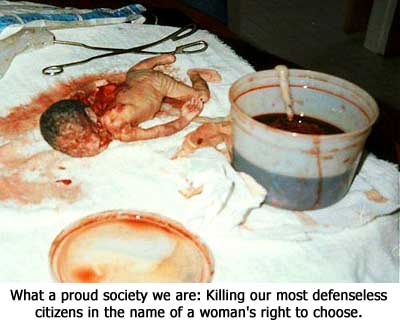 Abortion has been free on demand and available without parental consent in the country since 1975, resulting in the Nordic nation having the highest teenage abortion rate in Europe (22.5 per 1,000 girls aged 15-19 in 2009).
Abortion has been free on demand and available without parental consent in the country since 1975, resulting in the Nordic nation having the highest teenage abortion rate in Europe (22.5 per 1,000 girls aged 15-19 in 2009).
Swedish law does not in any way recognize the right to conscientious objection for health care workers (last year, the Swedish parliament overwhelmingly passed an order instructing Swedish politicians to fight against the rights of doctors to refuse to participate in abortion).
Meanwhile, sex education is graphic and compulsory, beginning at the age of six, and children from kindergarten age are taught cross-dressing and that whatever feels good sexually is OK. The age of consent is 15.
“We have so many violations of human dignity on so many levels, and so many problems when it comes to social engineering,” explained Johan Lundell, secretary-general of the Swedish pro-life group Ja till Livet. “This has been going on for the past 70 years.”
Lundell was a guest of ours recently at the Dignitatis Humanae Institute (Institute for Human Dignity) where he laid out a catalogue of offenses against human dignity in Swedish society. “We have the highest teenage abortion rate in Europe. Why? Because we say abortion is a human right, it doesn’t kill anything, just takes away a pregnancy,” he said. “And after 20 years of this, young people don’t care any more. Why should they? For 10 to 15 years no one has even said abortion should be legal but rare.”
Its sex education program, seen by some social liberals as groundbreaking but others as far too explicit, has been given by some as the principal reason for a low teenage pregnancy rate. But the high number of abortions among that age group are rarely discussed, nor are the figures disclosed. “No one talks about child abortions,” said Lundell. “They’re ashamed of them. Yet we’re the only country in Europe where there’s abortion on demand, there are no formal procedures, no parental consent, no informed consent.”
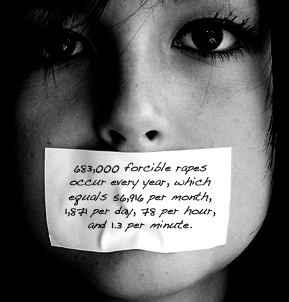 Nor are the number of rapes in Sweden widely known or advertised. Yet according to Lundell, over the past 50 years — during this era of loose sexual mores — they have risen by “1,000 percent.”
Nor are the number of rapes in Sweden widely known or advertised. Yet according to Lundell, over the past 50 years — during this era of loose sexual mores — they have risen by “1,000 percent.”
Lundell further noted that all other countries want to reduce the number of abortions, yet despite having 550 different government departments in Sweden, none has a mission to lower the number of terminations. “Children can see this is wrong, parents can see it’s wrong, and as a society we don’t want it and yet no one talks about it,” Lundell added. “It’s absurd.”
He said that Sweden should “definitely” be taken as a warning to other countries pursuing secularist, socially liberal policies “because then you can see what the agenda is for people, and how the European Union and the United Nations are copying these Scandinavian ideas.”
Returning to the subject of sex education, Lundell said Swedes generally don’t bother any more trying to argue that homosexuality is genetic– a common argument used to promote the same-sex agenda — because the movement is now so fully accepted that it no longer needs this argument as a support. “In sex education books, they don’t talk about someone being heterosexual or homosexual — there are no such things because for them everyone is homosexual,” he said.
Lundell referred to a brochure for children published by same-sex associations, and printed with the help of financing by the state. “They write positively about all kinds of sexuality, every kind, even the most depraved sexual acts, and it goes into all schools,” he explained. “The information is put on Web sites, and school children are told about the Web sites so they can see it.” Teachers, he said, are encouraged to ask students “What turns you on?” yet Lundell pointed out that if the chief executive of a company asked that at a business meeting, he’d be fired. “It would be sexual harassment,” he said. “And yet you train people to do this to children?”
Some parents have made formal complaints, branding it as carnal knowledge, too candid for the classroom and labeling the lessons as “vulgar” and “too advanced.” But the majority acquiesce to the curriculum, while the option to homeschool children is almost forbidden.
Yet to many outsiders, Sweden’s popular image is of a fair, ordered, just and harmonious society — the model example of a functioning welfare state. In many cases this is true if one looks at infant mortality rates, life expectancy, standard of health care and access to education. The level of poverty is also relatively low.
“It’s long been said that if it is not possible to bring about a socialist world in Sweden, then it’s not possible anywhere,” said Lundell. “That’s why some have tried to make it into a socialist paradise. But unlike in, say, Italy or Greece, in Sweden it’s not about the socialism of finances but rather the socialism of families — social engineering, which has been much more visible here than in southern Europe.”
Per Bylund, a Swedish fellow at the Von Mises Institute, once described the all encompassing power of the state thus: “A significant difference between my generation and the preceding one is that most of us were not raised by our parents at all. We were raised by the authorities in state daycare centers from the time of infancy; then pushed on to public schools, public high schools, and public universities; and later to employment in the public sector and more education via the powerful labor unions and their educational associations. The state is ever-present and is to many the only means of survival — and its welfare benefits the only possible way to gain independence.”
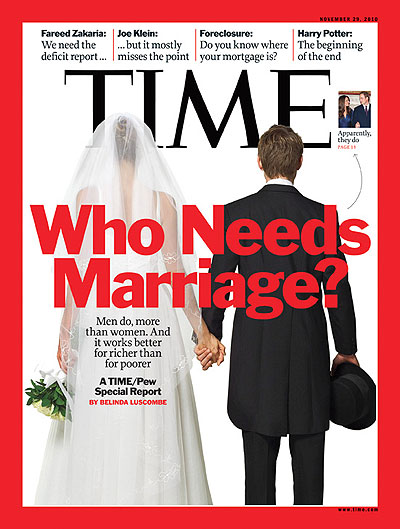 Yet this social engineering has had dire consequences. Few European countries have witnessed such a rapid decline in the institution of marriage, nor such an expeditious rise in abortion. During the 1950s and first half of the 1960s, the marriage rate in Sweden was historically at its peak. Suddenly, the rate started dropping so quickly that it saw a decrease of about 50% in less than 10 years. No other country experienced such a rapid change.
Yet this social engineering has had dire consequences. Few European countries have witnessed such a rapid decline in the institution of marriage, nor such an expeditious rise in abortion. During the 1950s and first half of the 1960s, the marriage rate in Sweden was historically at its peak. Suddenly, the rate started dropping so quickly that it saw a decrease of about 50% in less than 10 years. No other country experienced such a rapid change.
Between 2000 and 2010, when the rest of Europe was showing signs of a reduction in annual abortion rates, the Swedish government says the rate increased from 30,980 to 37,693. The proportion of repeat abortions rose from 38.1% to 40.4% — the highest level ever — while the number of women having at least four previous abortions increased from 521 to approximately 750.
With the exception of a few stalwart campaigners such as Lundell, most Swedish Christians — and particularly Christian politicians — remain silent in the face of the countless social violations against human dignity. Little resistance is also given to attacks on religious freedom for Christians, with priority increasingly being given to Sharia law.
Judging by the figures, it could almost be said the faith has packed up altogether. At the end of 2009, 71.3% of Swedes belonged to the Lutheran Church of Sweden — a number that has been decreasing by about one percentage point a year for the last two decades. Of them, only around 2% regularly attend Sunday services. Indeed, some studies have found Swedes to be one of the least religious people in the world and a country with one of the highest numbers of atheists. According to different studies carried out in the early 2000s, between 46% and 85% of Swedes do not believe in God.
Lundell said that although small, the Catholic Church has a good bishop and is helped by immigrants from Poland and Latin America. But Catholics are generally seen as outsiders with little influence and they are wary of overtly campaigning or being seen as “too tough,” he said. Even Pentecostals are reticent to raise objections. “They are probably the only Pentecostal church in the world that doesn’t,” he added.
But despite all this, Lundell, whose organization is attracting a growing number of young people, remains hopeful — and he remains ultimately loyal to his home country. “I’m so proud of Sweden I can’t imagine moving away,” he said. “But I am ashamed of the politics when it comes to the family, sexual politics and restrictions on freedom of religion.”
“Whole parts of society aren’t Sweden any more,” he added. “So we will fight, and we will do so with more eagerness than ever.”
Edward Pentin is a freelance journalist and Communications Director at the Dignitatis Humanae Institute. He can be reached at epentin@zenit.org.
 Director of Laity Council’s Sports Section Speaks on Prayer and Role Models
Director of Laity Council’s Sports Section Speaks on Prayer and Role Models
By Kathleen Naab
ROME, JAN. 13, 2012 (Zenit.org).- The director of the “Church and Sport” section at the Pontifical Council for the Laity admits that the “Tim Tebow phenomenon” has heightened his interest in the NFL playoffs.
 Legionary of Christ Father Kevin Lixey works in the Roman Curia helping the Church make a contribution to the world of sport, with the aim of promoting a sports culture suitable to the integral development of the individual.
Legionary of Christ Father Kevin Lixey works in the Roman Curia helping the Church make a contribution to the world of sport, with the aim of promoting a sports culture suitable to the integral development of the individual.
ZENIT spoke with Father Lixey about the Denver Broncos quarterback, Tim Tebow, after Tebow led his team to an overtime win in last Sunday’s playoff game.
Those familiar with the NFL — and even those who are not — might have heard of Tebow for more than his unique style as a quarterback. His outward expressions of his Christian faith are being talked about by all sorts of commentators, in the world of American football and beyond. Though certainly not the only athlete to publicly express his faith on the field, Tebow is drawing more attention than usual. We asked Father Lixey what he thinks about that.
ZENIT: Do you see Tim Tebow’s public expression of faith as a positive or negative phenomenon? Certainly it is drawing a lot of attention to Christ, in one form or another …
Father Lixey: The hype over Tim Tebow is certainly an interesting phenomenon in an ever more secularized world. I consider it something very positive. Even at the college level, while quarterback for the Florida Gators during the 2009 Bowl Championship Series title contest, Tebow wrote “John 3:16” on his eye black. The Palm Beach Post reported that 92million people Googled the verse following the game … impressive!
But, it is not the mere public expression of faith — as Tebow drops a
knee to give thanks after a touchdown, or prays with other players who include teammates and opponents after the game — that is attracting people; it is his entire person.

I had the chance to speak with the offensive coordinator who coached Tim at the Florida Gators. He said he was a very unique player who was spiritually on another stratosphere with respect to the rest of the team. Yet, Tim was respected by his teammates because he was genuine. And this is the point I would like to touch on. As one reporter noted (Chuck Klosterman, Dec. 6, 2011): “This, I think, is what makes Tebow so maddening to those who hate him: He refuses to say anything that would validate the suspicion that he’s fake (or naïve or self-righteous or dumb).”
While Tebow certainly sticks out for these external manifestations of his faith, not to mention his unorthodox playing style as an NFL quarterback, his personal background is also not typical for an NFL quarterback. It is a real “Cinderella” story — although those who have to tackle Tim would not consider him a Cinderella.
First of all, Tim Tebow was born in the Philippines to American parents who were serving as Baptist missionaries, as his father is a pastor. His mother, while pregnant, suffered a life-threatening infection and was advised to have an abortion but she decided not to, and both Tim and his mother survived a difficult pregnancy. Another unique aspect is that Tim, like his four older siblings, was home-schooled. Thanks to legislation that was passed in Florida in 1996, home-schooled students were allowed to compete in local high school sporting events.
ZENIT: OK, but does prayer really have a place in football? Surely God doesn’t care about who wins the Super Bowl — or does he?
Father Lixey: Judging from his public statements, Tebow is one of the few and most prominent religious athletes to recognize that God does not care about the score of football games. Tebow considers his missionary and philanthropic work much more important than football, but at the same time, possible, because of it. We all too often equate prayer with only asking good things from God, where prayer is only used “to obtain something” i.e., victory, health, or a miracle. The Catechism reminds us that prayer is also “the raising of one’s mind and heart to God” and that we “we must remember God more often that we draw breath.”
Certainly there are moments and places more conducive to prayer, but there is no reason that all religious manifestations be entirely banned from the public square. These external manifestations of one’s beliefs are impressive precisely because they are public. Just as Christians once fell to their knees at the sound of the Angelus bell to remember the Incarnation, or just as the cab driver makes the point of getting out of his car to bow down toward Mecca in prayer, I see no reason why a professional football player cannot offer a prayer of thanksgiving or point to heaven instead of doing a lewd victory dance in the end zone.
Nonetheless, these external manifestations can make some people feel uneasy and it is not certain how long this will be “allowed” in the NFL. The Danish Football Federation complained to FIFA for permitting members of the Brazilian national to gather together in prayer after their victory of the 2009 Confederations Cup. FIFA’s president responded by warning that any religious manifestation would not be permitted in the 2010 World Cup.
ZENIT: Along those lines, the Tebow “phenomenon” comes at a time when the U.S. bishops are particularly concerned about religious freedom. Is reaction to Tebow’s public expression of faith a sign that their concern is warranted? Or misplaced? Or is religious freedom on the playing field one thing, and in the public square something else?
Father Lixey: Pope Benedict XVI is also particularly concerned about religious freedom and touched upon this point Monday in his address to members of the diplomatic corps, noting: “In many countries Christians are deprived of fundamental rights and sidelined from public life; in other countries they endure violent attacks against their churches and their homes.”
Obviously the Holy Father was not speaking about the FIFA decision to sideline religion. But it does raise the question: “What is the public square today?” Is it literally that quaint square in front of a town hall somewhere in New England, where perhaps it is no longer permissible to display a Nativity scene? Or is it the Internet, a person’s desk at work, or the professional football stadium?
I think many are impressed with Tim Tebow’s courage in professing his faith for he certainly is mocked for it. When he received flack for doing a pro-life ad with “Focus on the Family” that ran during the 2010 Superbowl, he said: “I know some people won’t agree with it, but I think they can at least respect that I stand up for what I believe in.” This is all Tim is asking. Whether it is standing up, or taking a knee, for what he believes in, many people do respect this, that he stands up for what he believes. Yet, others become infuriated as they consider Tebow guilty of breaching the line that all are supposed to respect, namely, that which separates the secular from the religious, the holy from the profane, the sacred from the everyday.
ZENIT: As Catholics, what can we learn from this situation — from Tebow himself, perhaps, and from the reactions he’s causing?
Father Lixey: Blessed John Paul II once reminded a group of top professional soccer players: “The eyes of sports fans throughout the world are fixed on you. Be conscious of your responsibility! It is not only the champion in the stadium but also the whole person who should become a model for millions of young people, who need ‘leaders,’ not ‘idols.’ They need men who can convey to them the zest for challenge, a sense of discipline, the courage to be honest and the joy of unselfishness.”
I believe Tim Tebow is trying to live up to these words of John Paul II and his example can prompt other athletes to be “leaders” and not idols, being a model on and off the field, especially of the corporal works of mercy. As Tim shares in his own words: “When I was a student at the University of Florida, I found great joy in taking time to encourage children suffering from cancer in hospitals or visiting a prison or juvenile detention center, or doing mission work with my family at Uncle Dick’s Orphanage in the Philippines. … Football is so popular (that) it enables an athlete like me to establish a platform for doing good deeds … to take this experience to an even greater level of outreach and influence. … After my professional career, I plan on giving my life full time to this outreach.”
That’s not a bad role model for the youth. … It’s not a bad example for us to follow either.
Bishop of Solwezi on Priorities for His Church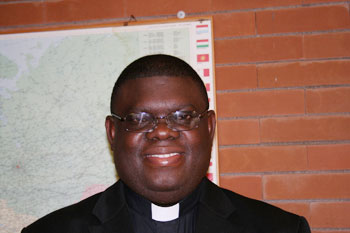
 ROME, JAN. 13, 2012 (Zenit.org).- The 41-year-old bishop of Solwezi in Zambia is entrusted with a diocese stretching some 34,000 square miles (88,300 square kilometers). Scattered over the territory are about 80,000 Catholics. In this rural, poor setting, Bishop Charles Kasonde says his priority is evangelization.
ROME, JAN. 13, 2012 (Zenit.org).- The 41-year-old bishop of Solwezi in Zambia is entrusted with a diocese stretching some 34,000 square miles (88,300 square kilometers). Scattered over the territory are about 80,000 Catholics. In this rural, poor setting, Bishop Charles Kasonde says his priority is evangelization.
Marie Pauline Meyer of Where God Weeps for Aid to the Church in Need spoke with the bishop, who is the fourth prelate to be charged with the task of overseeing Solwezi since it was declared a diocese in 1976.
Q: You have recently been appointed bishop (March 23, 2010). It this new task difficult?
Bishop Kasonde: Yes and no. It is difficult in knowing that it is a task that I have to perform and it requires a lot of experience. And it is measured by a lot of experience, of which I don’t have a lot. Once you are ordained a priest you remain open to the prompting of the Spirit in your life and also what the Church wants you to do. So we as priests, we have the missionary spirit ready to be sent anywhere and to be given any task; for us it is not a promotion, it is an appointment and we graciously say “yes” to that and we move on. So with that I rely on the grace of God to help me to carry out my activities with the support of the Christians, my brother priests, deacons, bishops and all the fraternity within the Church.
Q: What do you see as your most urgent project at the moment?
Bishop Kasonde: I think this is reflected through my motto, which is “Evangelization of the people of God.” Therefore I’m drawn much more to start projects that concern evangelization of the people, disclosing the love of Christ to the people; let the people encounter Christ. I’m not going to a new diocese; I’m going to a diocese that was founded in 1976. I’m going to a people who have already come into contact with Christ. I’m going there to add to what the people already know. I’m also going to a diocese that is largely rural and quite poor. So infrastructure will be needed. Many churches have been built out of mud and we need concrete churches that stand the test of time. So this is one more reason why I need also to go in that area, so that the people of God can worship the Lord in a house that is beautiful — and they are looking forward to going back to “their home,” the home of God. This is also my preoccupation.
Q: I’ve heard that there are many sects coming to Zambia. Is this something you have encountered?
Bishop Kasonde: My diocese is peculiar in a sense that out of the 10 dioceses it is the only diocese, by and large, which was occupied by the Protestants. Here our brothers and sisters shared greatly in proclaiming the Word of God. Catholicism is a little bit foreign, but slowly it is sinking in and people are getting to know about it and already we have our churches built, though some are very bad structures. Almost in the entire Northwestern province, which covers my canonical area, the population for the province is about 900,000 and the Catholic presence is just about 90,000 — 10% of the entire population. In other places the Catholic population goes, to some extent, even about 70% to 80%, so I have a long way to go.
Q: You say that your diocese is mostly rural and very poor. Are the poor attracted to other churches because they are given food and other needs of daily life?
Bishop Kasonde: Yes. The poor do it not intentionally but because they lack the very basic necessities. When you talk about poverty, it is overwhelming.
Q: Can you describe the poverty?
Bishop Kasonde: Poverty is making less than a dollar a day. They make 50 cents a day — that is all. Some even don’t make that much. So our people struggle a lot and they depend on farm produce. They also depend on the rain because we do not have irrigation systems; only a privileged few have this but the majority depends on the rain. Without the rain there is drought, which means they are unable to purchase their daily needs for their homes as well as tuition money for their children’s school fees. It is a very bad situation but by the grace of God we are surviving and we are happy even in the midst of that poverty.
Q: What do your people expect of you? 
Bishop Kasonde: They expect me to bring Christ to them; to be one who identifies and lives with them and one who brings them the Good News of the Risen Lord. You look at the people: They are very poor, yet very happy. We share the Word of God together. We pray together. We break bread together through the Eucharistic meal and that is what they want.
Q: When one consults the Internet about Zambia, most often the information one reads is about AIDS and poverty-related problems. Is this how you see it as well?
Bishop Kasonde: I see that but this is not all that is Zambia. Zambia is a peaceful and beautiful country. The media perhaps wants to portray Zambia as such but Zambia is not just poverty, AIDS or corruption. Of course we have these problems but when you walk around you see Zambians who are wealthy, Zambians who are poor. They are cheerful and well versed in what they do. Zambians are moderate and so it is a great mixture.
Bishop Kasonde: AIDS is certainly a big problem in the Sub-Saharan region of Africa and Zambia is part of this region. There is no cure so when one is infected, it spreads. We have seen especially the middle-aged people, the bread winners, the family providers dying from AIDS and the retired, the old, and the feeble — the grandmothers and grandfathers — taking over the role of parenthood again for their orphaned grandchildren, because their children are dying or are dead.
Q: Do you have a solution?
 Bishop Kasonde: I think one of the solutions could be investing in education. There was a time when the Catholic Church provided education facilities and then the government took over and “Zambianized” everything, which was a good thing but they became overwhelmed and they couldn’t provide the quality service in education. Now they want to dump this back on the Church, now that the schools are not in good condition and are dilapidated. So the Church is a little bit hesitant but we know that education is a priority. If we want to help our people it is through education because an educated person will suffer less than an illiterate one. Education is the key and empowerment especially for the generation that is growing up; if those are educated they will go and find their own means of sustenance and survival. So this is one area I want to look at — to get back the schools. If we have the money and we invest in them, we could renovate them and attract the teachers who could educate our children.
Bishop Kasonde: I think one of the solutions could be investing in education. There was a time when the Catholic Church provided education facilities and then the government took over and “Zambianized” everything, which was a good thing but they became overwhelmed and they couldn’t provide the quality service in education. Now they want to dump this back on the Church, now that the schools are not in good condition and are dilapidated. So the Church is a little bit hesitant but we know that education is a priority. If we want to help our people it is through education because an educated person will suffer less than an illiterate one. Education is the key and empowerment especially for the generation that is growing up; if those are educated they will go and find their own means of sustenance and survival. So this is one area I want to look at — to get back the schools. If we have the money and we invest in them, we could renovate them and attract the teachers who could educate our children.
Q: What is the hope for your country?
Bishop Kasonde: Zambia is very rich in minerals and natural resources. All we need is a leader who is able to interpret the signs of the times; a leader who is able to die a little for his people, a leader who is sincere and honest. We can’t be as poor as we are because everywhere you go you find minerals and we live in a rainy belt. Every season we have the rain, which is why people have not even invested in irrigation because we have enough rain for a season in which to grow crops. The poverty in Zambia is exaggerated. All Zambia needs is a leadership that could command respect and put things in order and we’ll be home and dry.
* * *
 This interview was conducted by Marie-Pauline Meyer for “Where God Weeps,” a weekly television and radio show produced by Catholic Radio and Television Network in conjunction with the international Catholic charity Aid to the Church in Need.
This interview was conducted by Marie-Pauline Meyer for “Where God Weeps,” a weekly television and radio show produced by Catholic Radio and Television Network in conjunction with the international Catholic charity Aid to the Church in Need.
